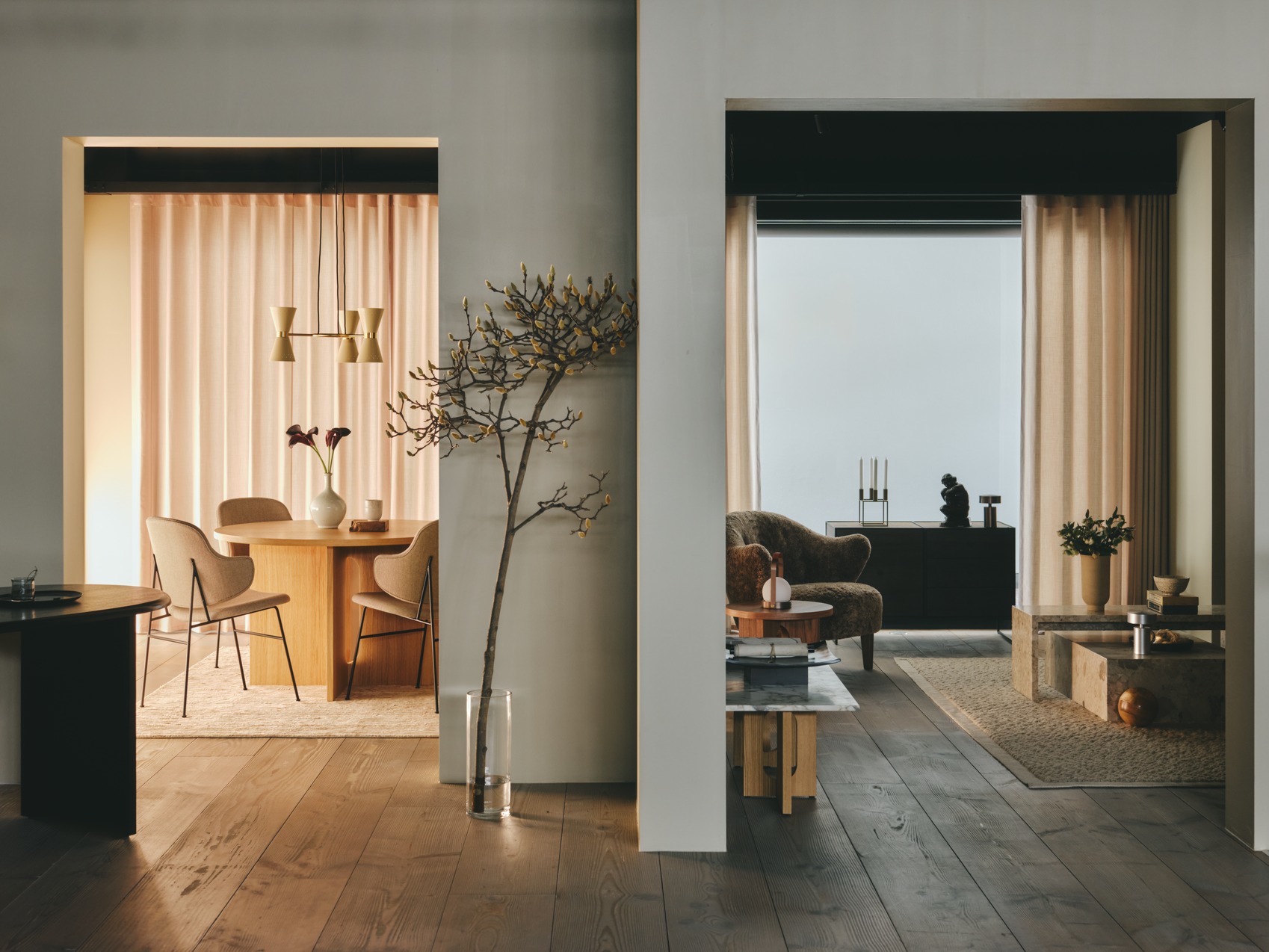
The smooth silhouette of a cream Vilhelm Sofa dreamt up by Danish designer Flemming Lassen in 1935. The clean tubular lines of linen pendant lights by Norm Architects. And all around, walls painted in warm shades of umber and in-between beige. So far, so Copenhagen. Yet this immersive scene – a timeless touch of heritage modernism balanced with a soft modern minimalism and organic palette – is not in Denmark. Instead, it now greets visitors arriving at the new Tokyo showroom of Audo Copenhagen.
The Danish company steps into a new chapter this week, as it makes its debut in Japan. Audo’s new Tokyo outpost – its second international location, after its longstanding TriBeCa showroom in New York – spans spans a third floor space in the Axis Building in the Roppongi district.
Audo Copenhagen lands in Tokyo
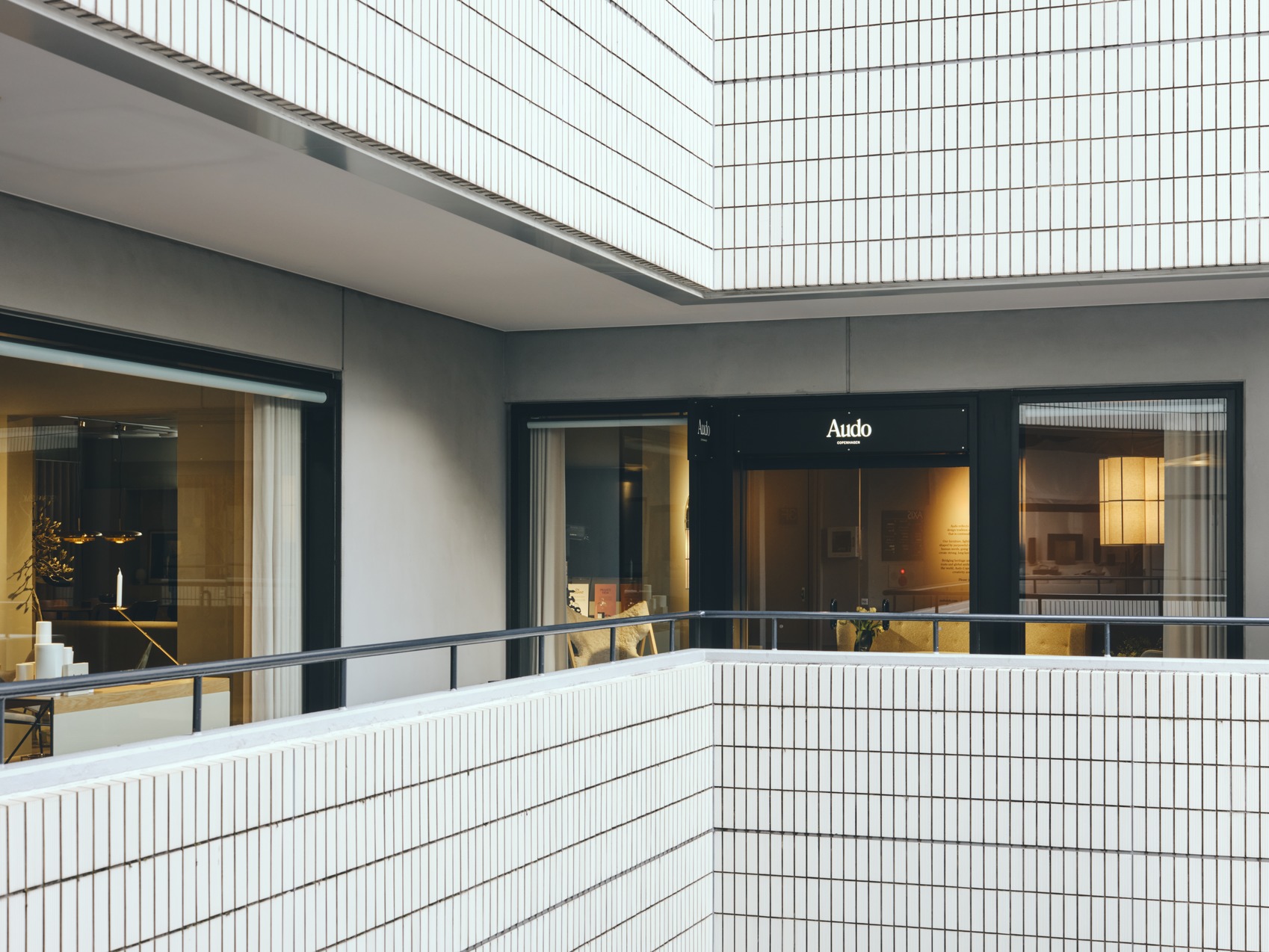
Audo Copenhagen, born last year through the merging of two torchbearers of Danish modernism Menu and By Lassen, is a brand rooted in balancing a century-old design heritage with a fresh, contemporary perspective. This harmony is reflected through the new Tokyo space. Here, a serene series of scenescapes offers a sensory immersion in Audo’s aesthetics, reflected in a curation of furniture, lighting and interior accessories.
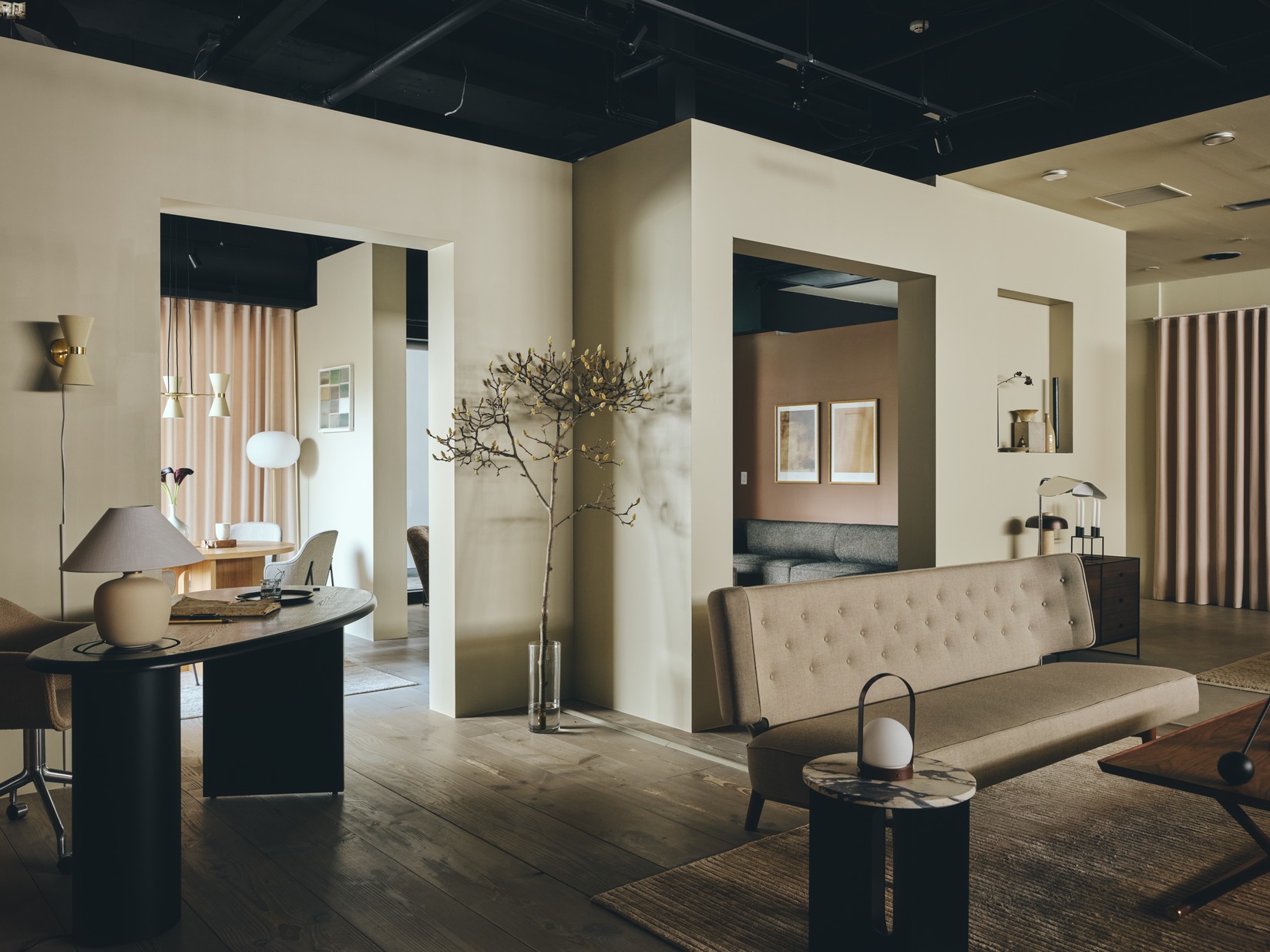
The timeless elegance of the angular wood and leather lines of the Seal Lounge Chair by Ib Kofod-Larsen sits alongside the smooth curves and quilted back of the iconic Radiohus Sofa, originally designed by Vilhelm Lauritzen for Denmark’s Radio House in 1936. Nearby are a string of creations by Norm Architects, Audo’s longtime creative partners, ranging from its softly minimalist Eave Modular Sofa (its flexible formation likely to be popular in Japan’s comparatively small homes) to the clean marble lines of its sculptural Plinth Collection.
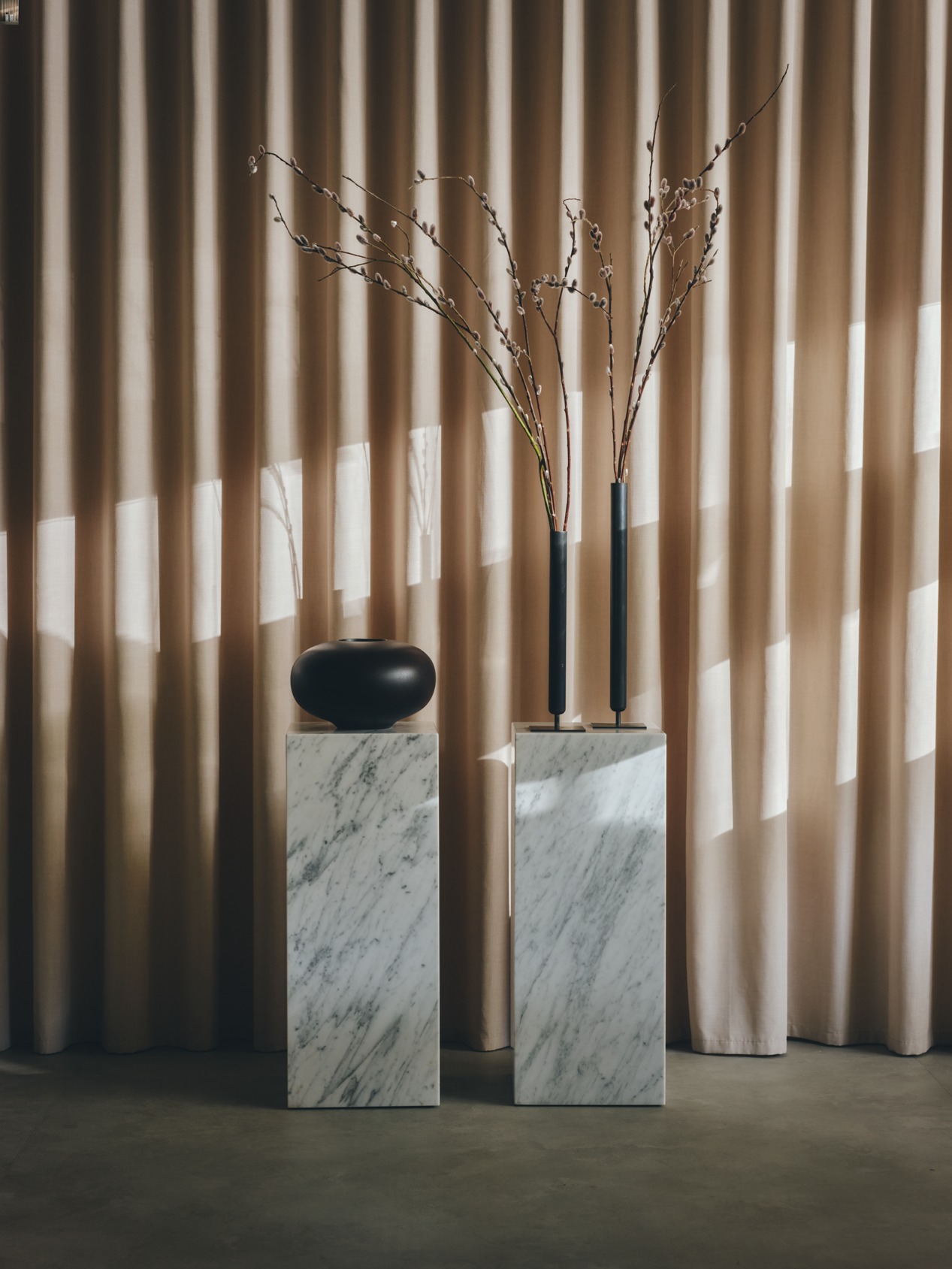
A connective hint of Japan is sensed in Norm’s Hashira Collection – a series of tubular lighting wrapped in linen, softly echoeing the play of light and shadows in the materials of traditional Japanese homes.
The textures of nature are further evoked by ivory Gravel Rugs by Nina Bruun and walls wrapped in earthy tones of St. Leo paints, alongside scatterings of plants and scented candles (Wet Ink, Midnight Soak, Chapter). Centre stage – tapping into Audo’s concept of community – is also a coffee counter lit up by a row of TR Bulb Pendant Lights.
'A good time to step into Japan'
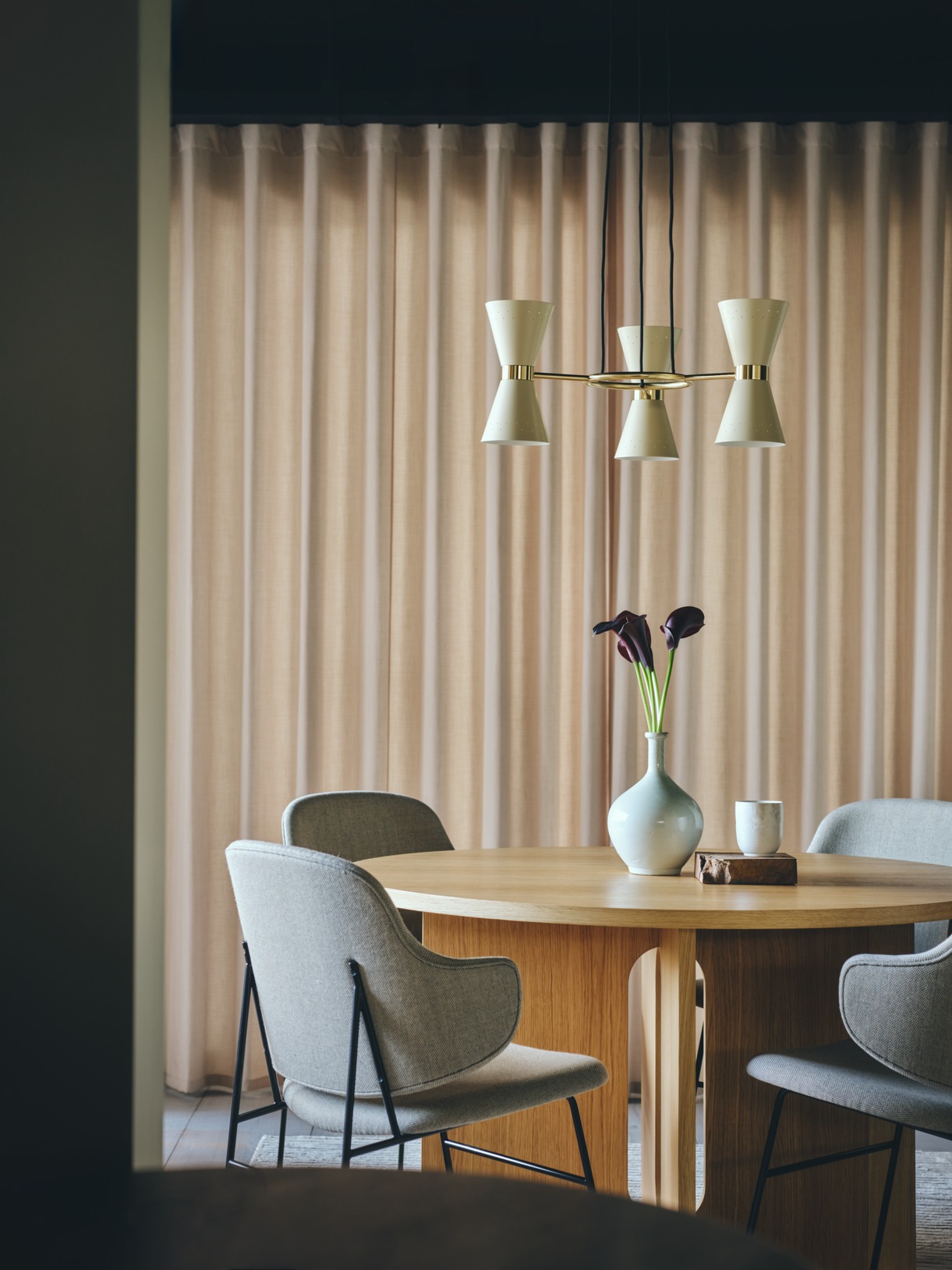
Joachim Kornbek Engell-Hansen, Audo’s brand and design director, and grandson of the founder of Menu, explains the concept while seated around the warm solid lines of a circular wooden table by Danielle Siggerud in a sun-filled corner of the showroom. 'Now feels like a good time to step into Japan,' he tells Wallpaper*. 'With the switch of going from Menu to Audo and also adding in products like the Brdr. Petersen – very Danish crafted pieces – we feel the collection is somehow ready to take to Japan.'
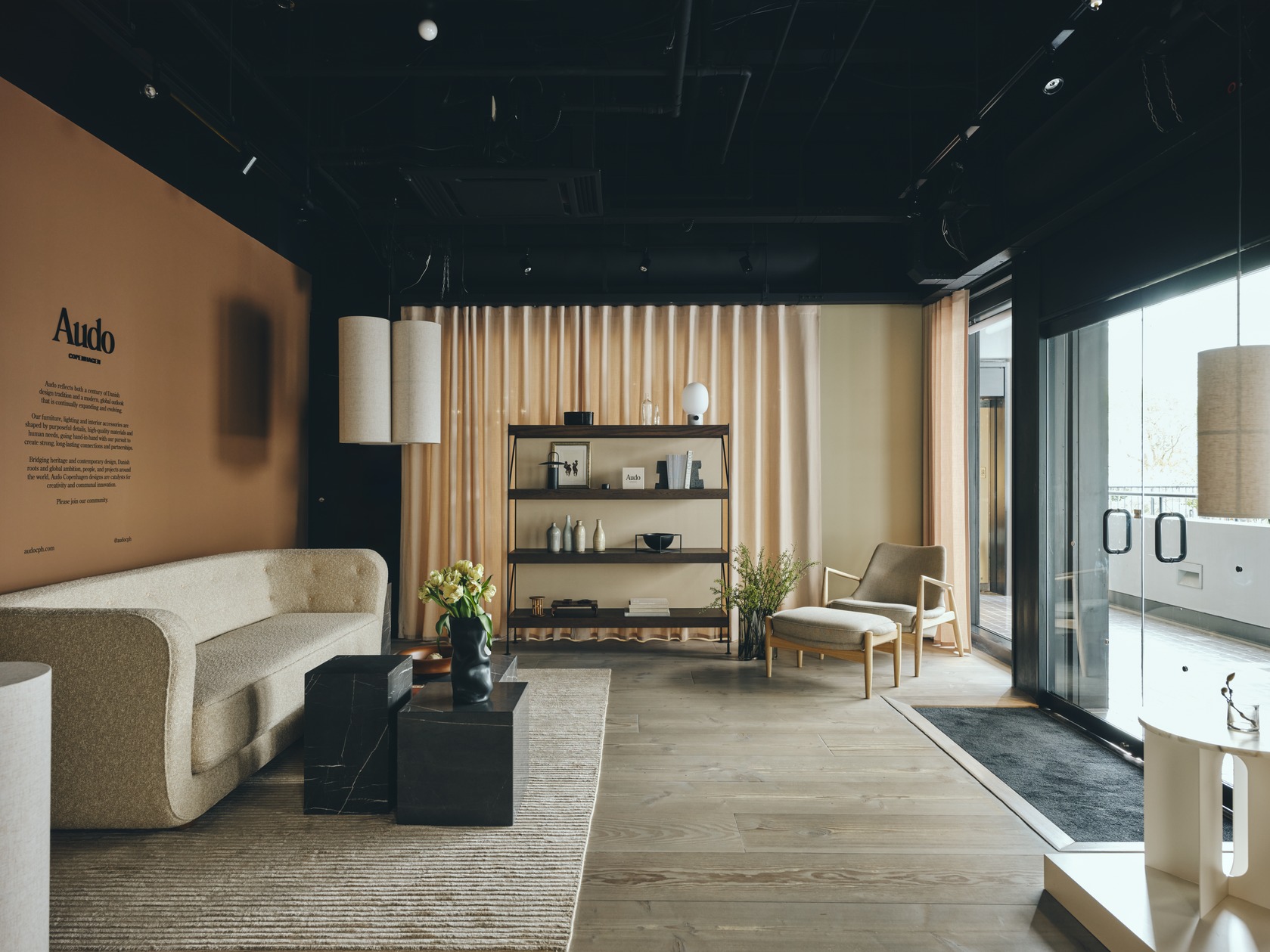
The new Tokyo space bridges these two worlds evoking a taste of Audo House – its community-focused hybrid HQ in Copenhagen designed by Norm Architects, with a concept store, restaurant and 10 overnight rooms.
He adds: 'We know we can’t do the same scale here as in Copenhagen, but we want this space to feel like a small fraction of the full concept. There used to be a more open space here, but we created these walls so we could have these different sceneries unfolding – so it feels like you’re coming to Audo. We are not just about selling products – we want to create a universe, through these different experiences.'
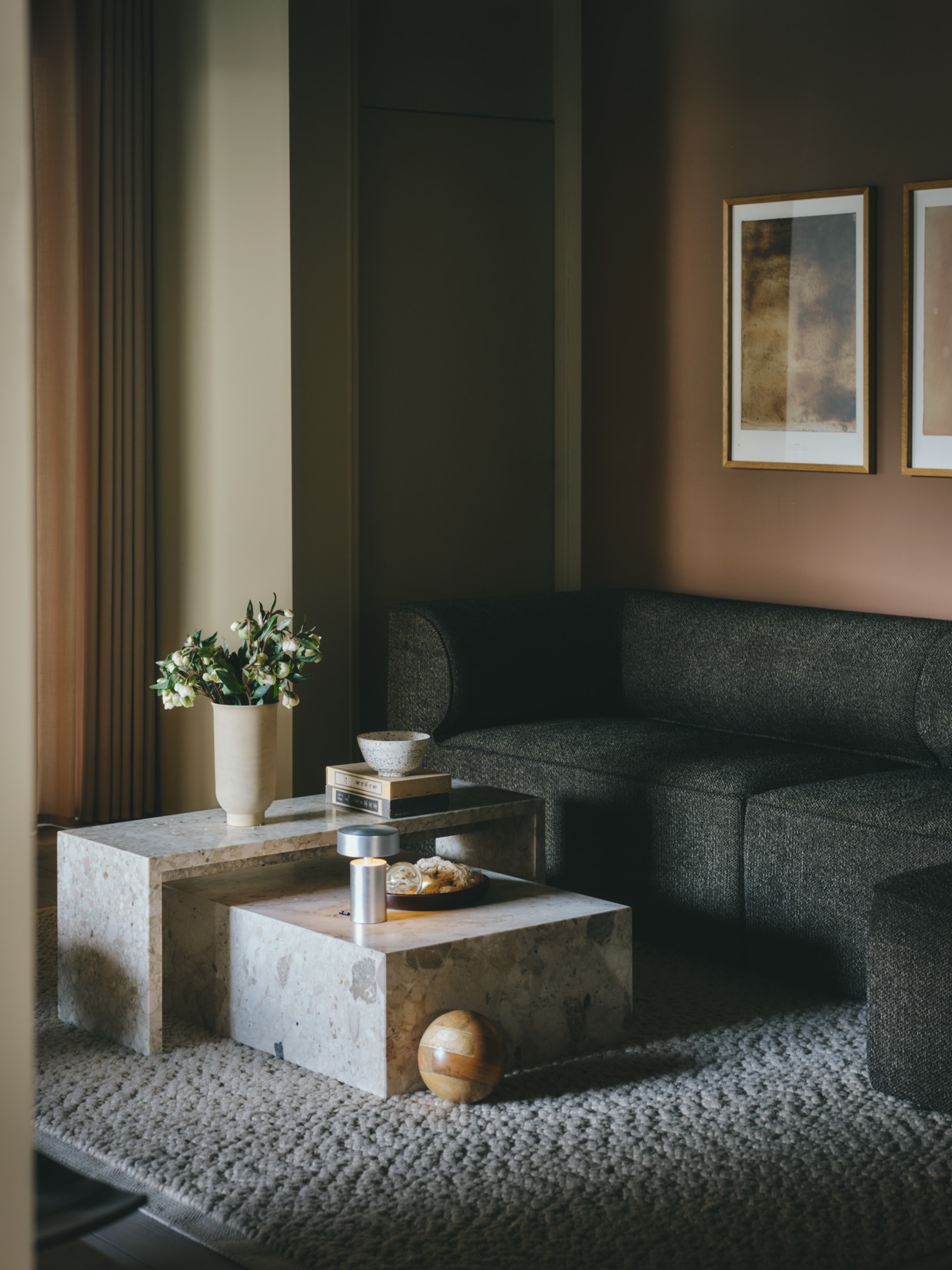
Sitting next to him is Frederik Werner, designer and partner at Norm Architects – and close collaborator for about 15 years – who highlights the deep aesthetic affinities between Japan and Denmark as an organic foundation to the brand’s expansion. 'What I find really interesting here is this profound respect for the material,' says Werner, who regularly works in Japan, with Norm Architects often partnering with architect Keiji Ashizawa, on projects ranging from Karimoku Case to Trunk (Hotel) Yoyogi.
'There is an honesty about the designs, nothing gimmecky or fake. There is an attention to detail and a common design language between Denmark and Japan. We can have the same expectations in terms of the outome or quality of a project. Somehow, these are two cultures than be seamlessly blended. Some of the world’s biggest collectors of Danish classics also come from Japan.'
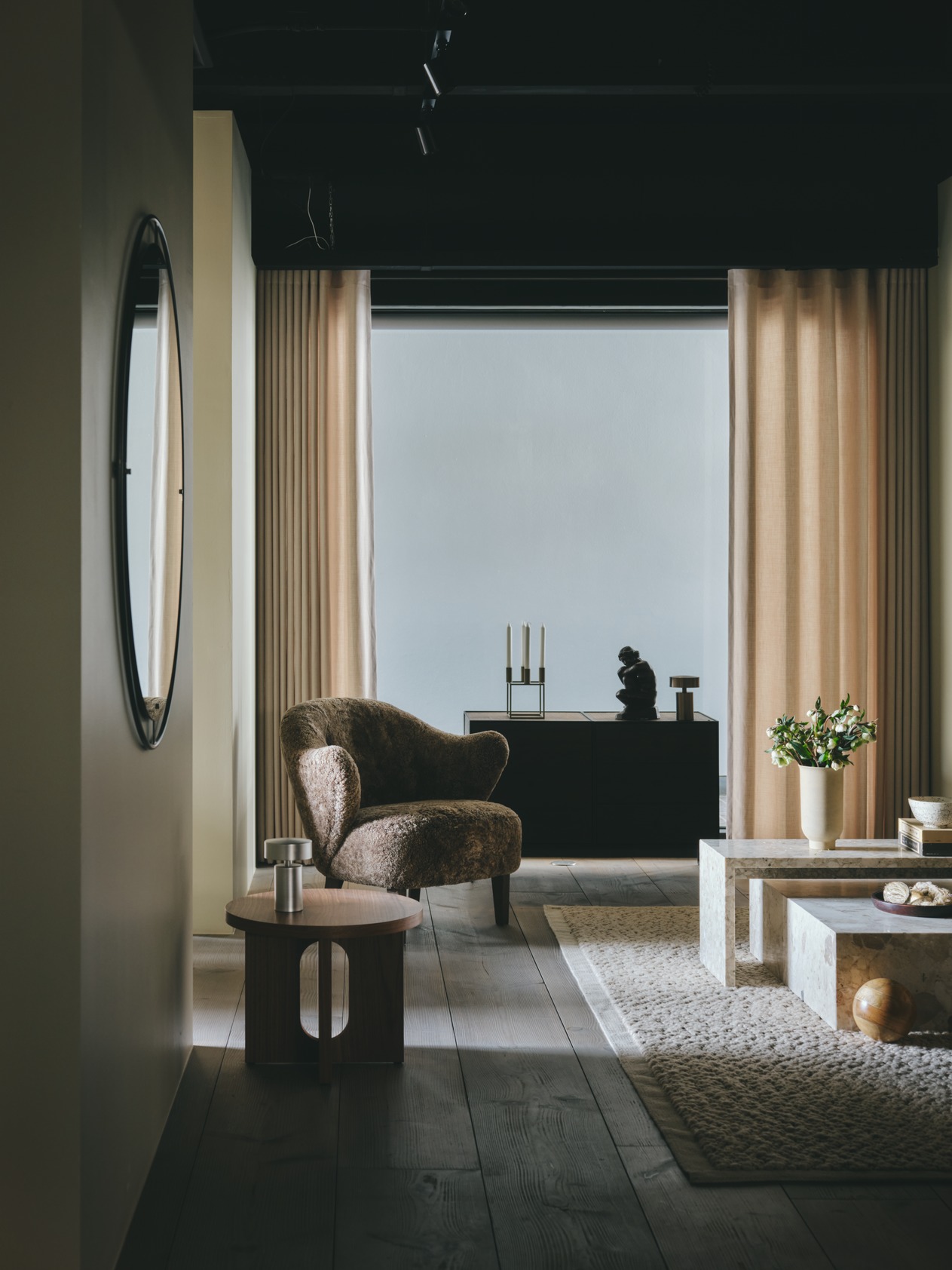
Referring to the new space, he adds: 'For many years, we had furniture showrooms, with pieces on podiums, almost like dead spaces. It’s incredibly important to evolve all the senses when you enter a space.'
For Audo, the idea of community and collaboration is key. In addition to tapping into the business platform of Louis Poulsen in Japan (a sister brand under the Design Holding umbrella), which was formerly based in this space, Audo will also build partnerships with 'local ambassadors', as is the case in New York with designer Colin King.
'We don’t have an internal creative team so we are very dependent on collaborations,' says Kornbek Engell-Hansen, who was planning to visit Kyoto artisans the next day with Werner, as part of his first trip to Japan. 'There is a collaborative spirit. This Tokyo showroom may be a small fraction of Audo but aesthetically it has the same style and atmosphere.'







